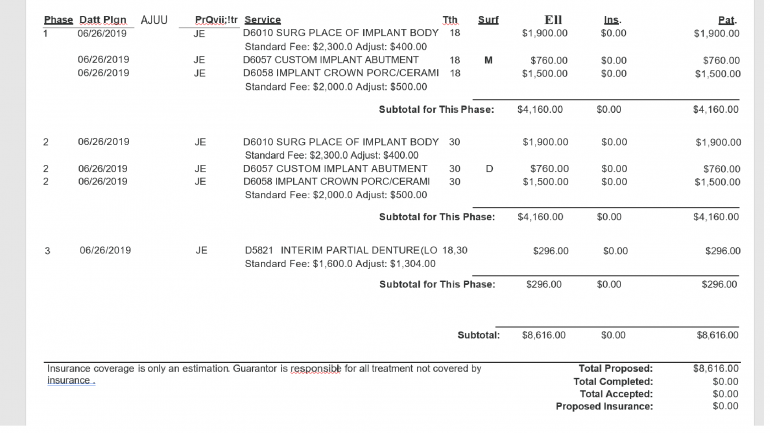
Dental Code D9991: Overcoming Appointment Compliance Barriers
Dental Code D9991, known as "Dental Case Management - Addressing Appointment Compliance Barriers," is an important tool that helps dental professionals support patients in attending and completing necessary dental treatments. This code recognizes that there are often complex socioeconomic and personal factors that can make it challenging for patients to keep scheduled appointments, leading to gaps in care that negatively impact oral health. By utilizing Code D9991, dentists can intervene and address these barriers, improving appointment attendance and promoting better long-term outcomes.
What Does Dental Code D9991 Mean?
Code D9991 is a dental procedure code that allows dentists to bill for the time and resources required to identify and resolve issues that are preventing a patient from keeping their scheduled appointments. This includes assessing the specific barriers a patient is facing, developing an individualized plan to overcome those barriers, and providing the necessary support and coordination of services.
The goal of D9991 is to improve a patient's ability to access and engage with recommended dental care. By addressing social determinants of health, logistical challenges, and other obstacles, dentists can help ensure patients are able to get the treatment they need to maintain good oral health.
Detailed Process of Dental Code D9991
Identifying Appointment Barriers
The first step in utilizing Code D9991 is for the dental team to have an open discussion with the patient about any challenges they are experiencing that make it difficult to attend appointments. This could include issues like:
- Lack of transportation or unreliable access to get to the dental office
- Competing work, school, or family commitments that make it hard to schedule appointments
- Financial constraints that make paying for dental care a significant hardship
- Dental anxiety or fear that discourages the patient from seeking treatment
- Cultural or language barriers that create confusion or miscommunication
By thoroughly exploring the patient's unique situation, the dental staff can gain a clear understanding of the specific barriers preventing consistent appointment attendance.
Developing an Intervention Plan
Once the barriers have been identified, the next step is to collaboratively develop an intervention plan with the patient. This plan should outline concrete steps and strategies to address each of the issues identified. For example:
- Arranging for transportation assistance, such as ride-sharing services or connections to community programs
- Scheduling appointments around the patient's work or family obligations to minimize conflicts
- Providing information on payment plans, sliding scale fees, or other financial assistance options
- Incorporating behavioral techniques to help the patient manage dental anxiety
- Utilizing language interpretation services or culturally-tailored educational materials
The intervention plan should be highly personalized to the individual patient's needs and preferences. Actively involving the patient in this process helps ensure the proposed solutions will be effective and feasible for them to implement.
Providing Ongoing Support and Coordination
After the intervention plan has been established, the dental team will continue to work closely with the patient to put the plan into action. This may involve:
- Regularly checking in with the patient to monitor progress and troubleshoot any new barriers that arise
- Coordinating with other healthcare or social service providers to ensure the patient has access to all necessary resources
- Offering appointment reminders, appointment scheduling assistance, and other logistical support
- Providing encouragement, education, and emotional support to keep the patient motivated and engaged in their oral healthcare
The dental team's role is to be a collaborative partner, helping the patient navigate and overcome the complex challenges they face. By taking this hands-on, comprehensive approach, they can significantly improve the patient's ability to attend and complete recommended dental treatments.
Summary of Dental Code D9991
Dental Code D9991, "Dental Case Management - Addressing Appointment Compliance Barriers," is an important tool that allows dentists to support patients in keeping their scheduled appointments and getting the oral healthcare they need. By first identifying the specific barriers a patient is facing, then working with them to develop and implement a customized intervention plan, dental teams can make a meaningful difference in improving appointment attendance and promoting better long-term oral health outcomes.
Through the use of Code D9991, dentists can go beyond just providing clinical treatment and truly address the social determinants of health that impact a patient's ability to access and engage with care. This holistic, patient-centered approach is essential for ensuring equitable access to quality dental services and helping all patients achieve and maintain optimal oral health.
Don't let appointment barriers stand in the way of your dental health. Speak to your dentist about how Dental Code D9991 can help you overcome challenges and get the care you need. Visit Dr. BestPrice to find affordable dental treatments in your area.
